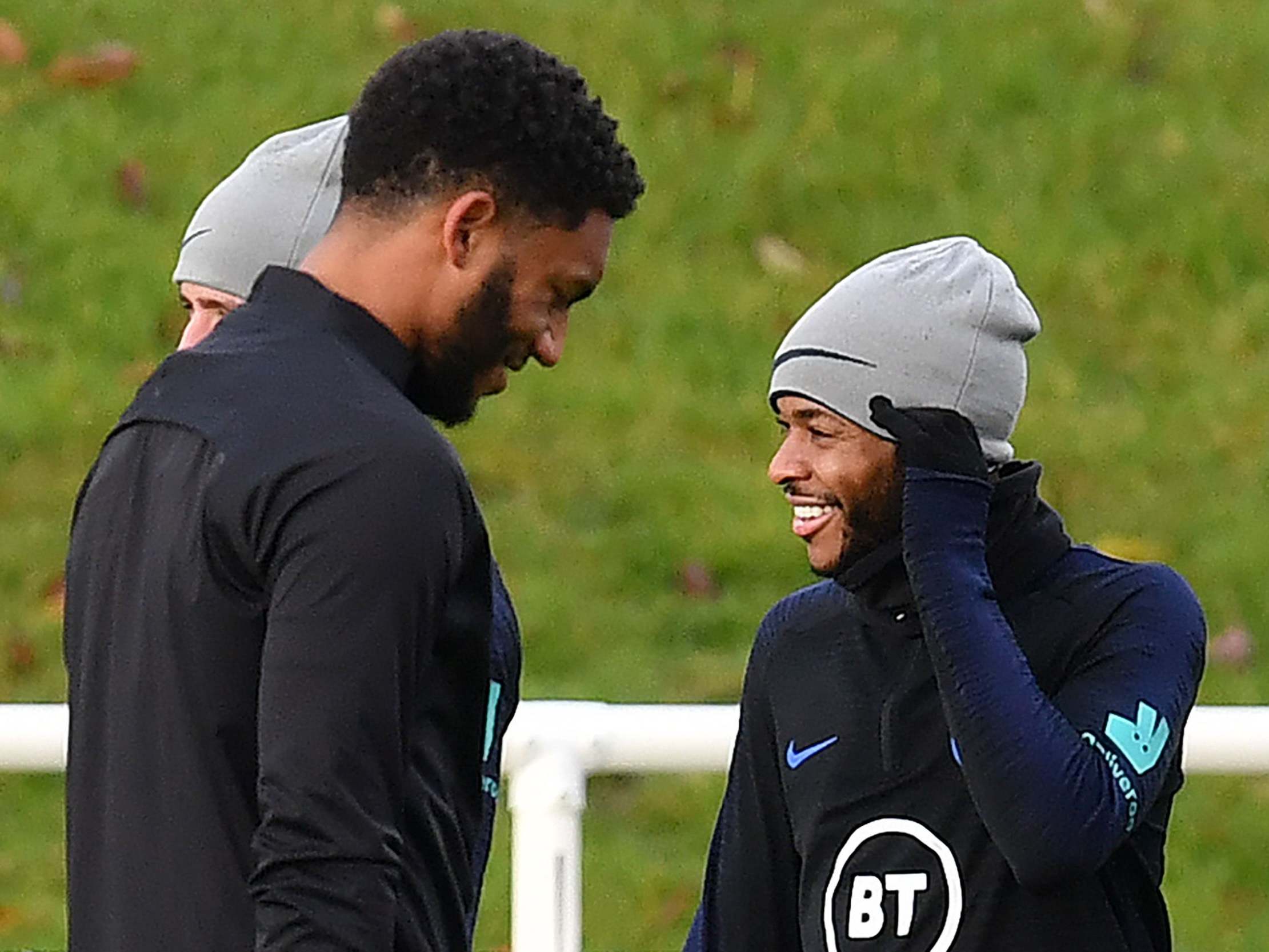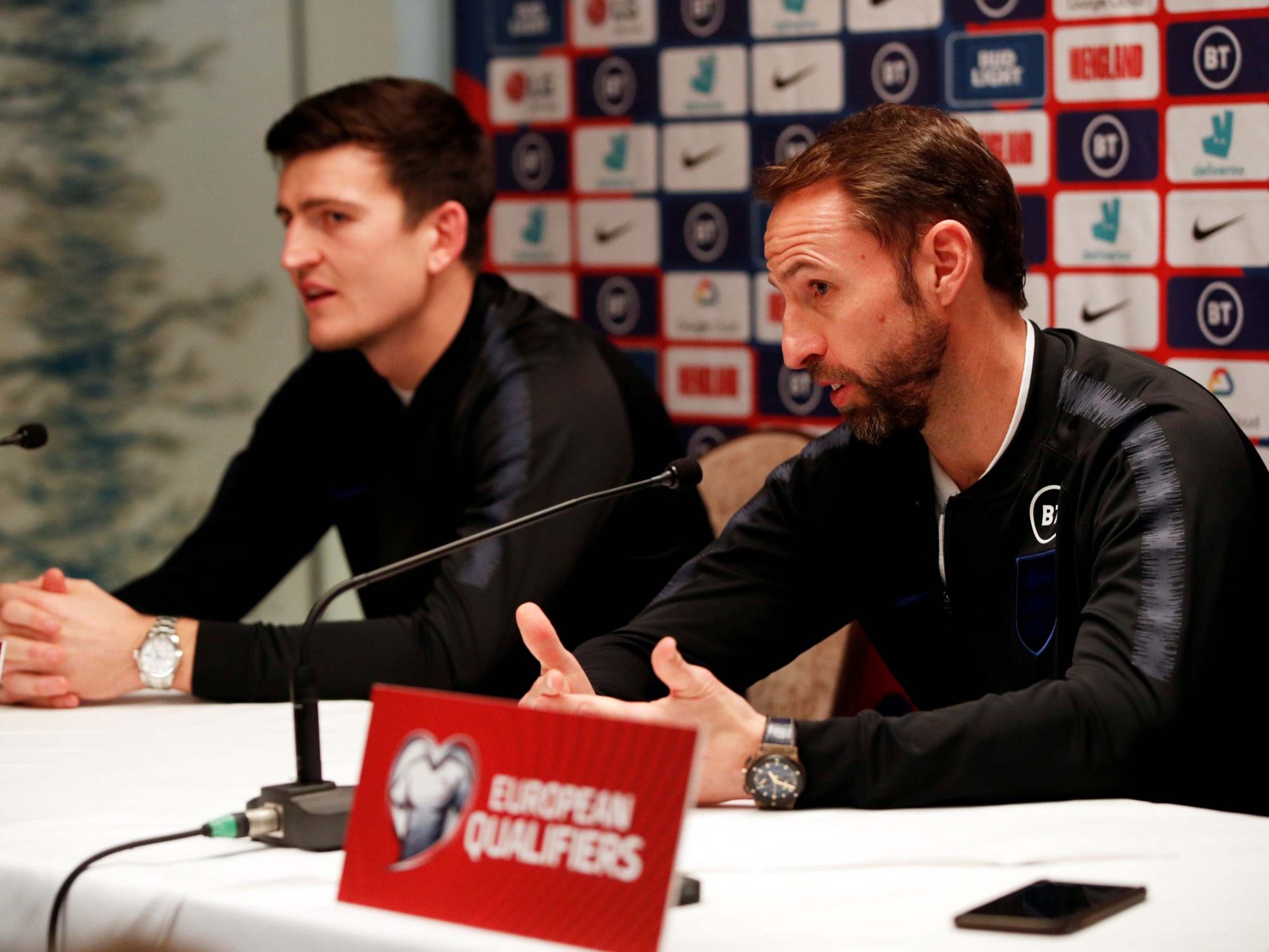Why this week has been about something much more important than Raheem Sterling and Joe Gomez
Ahead of the 1,000th England game it has been a week filled with challenges: of how you manage a side with so much weight, so much baggage, so many questions about its identity… and so much history

Your support helps us to tell the story
From reproductive rights to climate change to Big Tech, The Independent is on the ground when the story is developing. Whether it's investigating the financials of Elon Musk's pro-Trump PAC or producing our latest documentary, 'The A Word', which shines a light on the American women fighting for reproductive rights, we know how important it is to parse out the facts from the messaging.
At such a critical moment in US history, we need reporters on the ground. Your donation allows us to keep sending journalists to speak to both sides of the story.
The Independent is trusted by Americans across the entire political spectrum. And unlike many other quality news outlets, we choose not to lock Americans out of our reporting and analysis with paywalls. We believe quality journalism should be available to everyone, paid for by those who can afford it.
Your support makes all the difference.It was, in its own way, a comment that fittingly described the last 999 games as much as the last week. Little wonder the role of England manager used to be called “the impossible job” for so much of that time.
“I think anybody who walks in my shoes has to deal with all of those things,” Gareth Southgate said. “So whenever I pick a squad, the country’s divided. Whenever I pick a team, the country’s divided. And then the team has to go and play…”
Southgate was of course referring to the debate over his decision to drop Raheem Sterling for the final Euro 2020 home qualifier against Montenegro, which also happens to be the occasion of the national team’s 1,000th game, after his altercation with Joe Gomez. It has naturally dominated the week.
And yet if it feels something of a shame that a controversy like this has overshadowed the celebrations, it’s actually in-keeping with so much of England’s history, and a timely reminder of what the atmosphere surrounding the national side used to involve.
Time was that controversy, or a heaving sense of tension amid so much external pressure, used to consume the squad. The default used to be some kind of off-pitch difficulty.
That’s not the only that fits about Southgate’s side as it comes to this landmark match.
Like so much of that history, we don’t quite know how good England are right now.
Like so much of that history, the grand ambition remains to end a long wait for a trophy.
Like so much of that history, they’re set for another relatively comfortable qualification, that actually only serves to confuse discussion.
This has been England 1,000, or pretty much any year you care to mention out of 147.
This is also what Southgate is still seeking to change, and why Thursday is as much about the future as it is about history.
It does feel like one of football’s grand quirks that, after over a year when it had seemed the manager had started to change that and made England “fun” for pretty much the first time in memory, it all got so serious again.
You can’t fight who you are that easily.

The Sterling-Gomez incident only followed the grim racism storm in Bulgaria – which did at least display the character of the players – and a first competitive defeat in a year, as well as some actual dysfunction in the team for the first time in a long while.
Having had to deal with some properly weighty issues, Southgate now has to weigh up what is best for his side and how it works.
There is suddenly a fair bit of doubt about England’s entire back six, the manager doesn’t really know his best midfield, and you could even add in some questions about Harry Kane’s form.
To top all that off there is now this controversy over his other undisputed starter – and probably now best player – in Sterling.
How Southgate has dealt with that has brought proper criticism of the manager for pretty much the first time in a year and a half, too.
He acknowledged that Sterling probably has “the hump” with him, and some of those close to the player are certainly displeased.
A number of former players like Rio Ferdinand have also had a lot to say, although a lot of that has only served to remind of the problems and strife so many previous England teams had. This is what Southgate is striving so hard to strike away from.
Little wonder he himself reminded that his job can be “a lonely place to be, a challenging place to be”.
His management has ensured it hasn’t always felt like that, but many of his predecessors – who he of course made sure to mention amid talk of the 1,000th game – would empathise.
There was similarly a question to Harry Maguire about just how pressurised it can be for an England player.
Even there, though, you could note another change. So many England internationals used to speak of how the status could be almost insufferable. There’s so much focus. So much scrutiny.
Many of the country’s greatest players have had great issue with it, and it has even been put forward as a major reason for underperformance that Southgate himself has sought to address.

You didn’t quite get that sense of Maguire, though, which represents another sign of progress.
“We know the situations that could go on, yes they happen, but I’m sure that all the players would say the same: you go in, you work hard on the training pitch and you take it into the game and the bottom line is that the 90 minutes in the game is what matters. So, the full focus as a player is definitely on the game. Obviously, the situation in Montenegro and Bulgaria is disappointing. Difficult to play over there in the atmosphere, but there’s nothing we can do about that. But the players are fully focused on playing the 90 minutes and preparing as well as we can for it.”
It’s just there is more doubt about who those players might be than in any period since before the World Cup.
Both Southgate and Maguire acknowledged they have problems, particularly in the base of the team and how they defend.
“We’ve conceded a few sloppy goals recently,” the centre-half said. “I’m not proud of it, and we’re working hard on the training pitch to make it better.”
Southgate admitted it goes deeper than the defence.
“We need to look at that tactically and in terms of the profile of players in certain positions. So, you know, some of the goals we’ve conceded have been by our conceding of the possession in our own half. And then we’ve conceded too many set-plays in certain matches as well, which has meant we had to defend more set-plays on that night.”
Southgate suddenly has decisions to make, that go way beyond a forgiving home qualifier against Montenegro.
So many of England’s 1,000 games, it must be said, have felt like this: winnable campaign matches against lesser European opposition that are really about conditioning for bigger matches.

To that breakdown of what many of that millennium of matches look like you could add: Victorian-era friendlies against Scotland; apparent do-or-die qualifiers against Poland; friendly victories against big opposition that signal all-conquering domination; friendly defeats to big opposition that signal a massive crisis; group games and – of course – quarter-final eliminations.
Which brings us to now, and what’s next, rather than the past.
This is what it’s all about. This is why Southgate understandably dodged a question on whether he would have made the same decision regarding Sterling before a big knock-out game as a “hypothetical”.
All of this is really about ensuring the team is in the best condition for such tests. It’s why this week wasn’t really about Sterling and Gomez, but about the challenges of how you manage England; how you manage a side with so much weight, so much baggage, so many questions about its identity… and so much history.
This has been England 1,000.
But it’s why this night, and this week, is as much about what’s to come. Southgate knows that as well as anyone.
Join our commenting forum
Join thought-provoking conversations, follow other Independent readers and see their replies
Comments